Westrock Coffee opens North America’s largest roast-to-RTD manufacturing facility
Private-label coffee manufacturer already has plans for much more growth.

Article photos by Westrock Coffee Co.
Dairy Foods has visited many plants over the years, but few match the size of Westrock Coffee Co.’s facility, opened earlier this year. The 570,000-square-foot facility spanning 45 acres is now the largest roast to ready-to-drink (RTD) manufacturing facility in North America, the company says.
“The opening of the Conway facility marks a critical milestone for Westrock Coffee,” said Scott Ford, CEO and co-founder of Westrock Coffee. “In line with our commitment as a world leader in beverage innovation, we [launched] the largest integrated beverage facility of its kind. This uniquely positions us as a leading force in beverage production across any channel and beverage format. Moreover, this facility extends our commitment to sustainability and responsible sourcing for our customers, farmer partners, and the communities we serve.”
Westrock, a NASDAQ publicly traded stock with a market capitalization of $889 million as of mid-June, pumped $315 million into the impressive facility with ample room for expansion to match its growth plans.
The plant, located in Conway, Ark., which boasted a population of 67,617 in 2022, is manufacturing RTD coffee beverages on a private-label basis for many well-known companies, utilizing dairy as an important part of its process. Many of these beverages can be purchased at convenience stores, supermarkets, and other retail outlets.
The first sellable product that the facility produced took place in April. “We are the only facility that has green to ready-to-drink under one roof,” says Plant Manager Cedric Smith, a 25-year industry veteran. “That means everything including batching, filling, and packaging for the store.”
In fact, Westrock handles a variety of packaging options, including glass bottles, cans, bag-in-box, pumps, totes, and drums. The coffee company can produce anywhere from 16- to 48-ounce cans.
“Our groundbreaking was in March 2023, so in 13 months, we had our first sellable product,” Smith notes. “All of our team members have been great.”
The Conway facility, which boasts the largest storage area for coffee in the state of Arkansas, has already received plenty of notoriety in the state. In fact, Gov. Sarah Huckabee Sanders visited the location twice, with her second visit taking place one day after Dairy Foods’ jaunt in June.

Westrock Coffee Co.'s Arkansas plant spans 45 acres and is the largest roast to ready-to-drink manufacturing facility in North America.
“The Ford family’s commitment to Arkansas is legendary, and today’s opening is just the latest in the long string of investments and jobs they’ve created for our state,” Gov. Sanders said during her first visit. “Westrock Coffee is quickly becoming one of Arkansas’ fastest-growing companies, a testament to the business savvy and hard work of the people behind it.”
In addition to Westrock Coffee’s Conway production facility, a new 530,000-square-foot warehousing and distribution center — located just two miles away — ensures efficient product distribution, reduces transportation times, and maintains a smooth and transparent flow of materials and finished goods.
A two-hour tour
Westrock is currently operating at 75% capacity, with plans to reach full capacity in the coming months. The company currently operates an eight-hour, five-day-a-week shift. Once full capacity is achieved, the company will employ 900 people at its new Conway manufacturing plant.
The Arkansas concern selected Conway for several reasons, including some of the lowest utility costs not only in Arkansas but the entire country, the company reveals. The Conway building, a former Kimberly-Clark paper facility, which was on the market at an “attractive price,” is located right near Interstate 40, and is close to Westrock’s Little Rock, Ark., headquarters.
Much had to be done to convert from a paper facility to a beverage facility. Westrock, of course, could not just move into the paper facility. However, it converted the property swiftly, the company says.
As for what the plant can do, Stephanie Gonzalez, Westrock’s director of research and development (R&D), explains that some of Westrock clients have an exact recipe they want the company to replicate, while others ask for a beverage formulation to be made from scratch. Either way, an extensive process of formulation, testing, and having the client test the product and provide feedback must be completed before any product reaches store shelves.
Plant Manager Cedric Smith led Dairy Foods on the full tour, with no stone left unturned during the two-hour, all-access tour. Among the tour highlights were a look at retort systems; homogenizers; 10,000- and 12,000-gallon-capacity silos; receiving areas; a visit to the dry coffee room, where one large grinder can process up to 15,000 pounds of coffee in one hour; a view of Fogg Filler bottle filling machines; a look at several automation systems; plus much more.
Yet, Westrock left perhaps the best part — at least for Dairy Foods — near the end of the tour: A comprehensive look at its dairy room. The company utilizes both dairy and dairy alternatives based upon customer demand. Every Westrock product line uses dairy or an alternative, with the exception of its extended shelf life (ESL) beverages. Dairy products are primarily sourced from cooperatives.
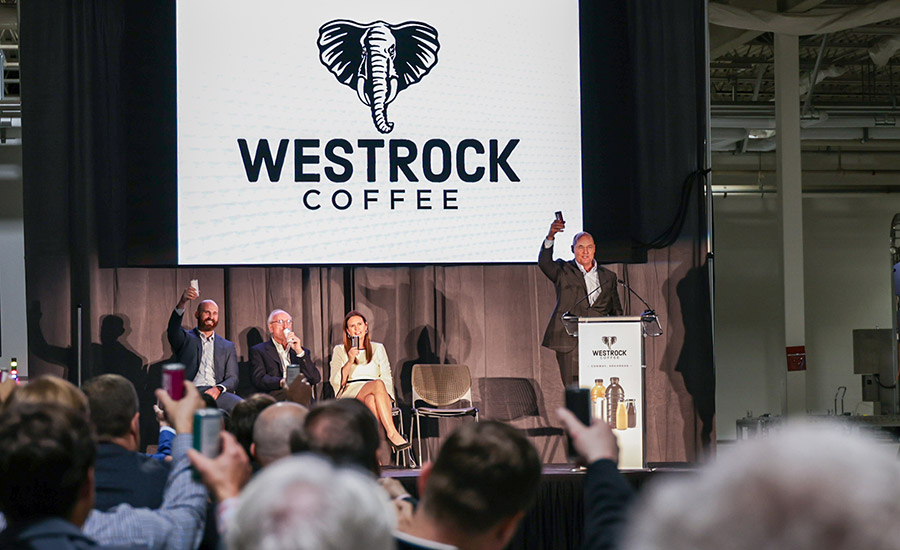
Westrock CEO and Co-Founder Scott Ford has plenty to cheer about. The company officially sold its first ready-to-drink coffee beverages, sourced from its new plant, in April.
The dairy room features two cream and two skim tanks. “One of the beauties of our system is it is fully integratable. I can see everyone that is going on,” Smith states.
Capping off the dairy segment tour was a visit to the dairy receiving room, where companies deliver both milk and cream to Westrock.
Expansive plant
In addition to processing coffee beverages, Westrock’s R&D
lab is fully equipped to develop and refine retorted beverages from initial concept to final product. It mirrors its full-scale operations, ensuring a smooth transition from lab-scale experiments to commercial production while maintaining high-quality standards.
The facility features a tremendous amount of green coffee storage capacity, with 24 individual silos grouped into two batteries that hold a combined total of over 1 million pounds. These silos provide essential on-site storage, efficiently feeding its roasting program.
Its roasting capabilities are highlighted by two fully automated Scolari Roasters, each handling 360 kg per batch. Equipped with in-line moisture and roast color analysis and advanced roast profile software that adjusts to external factors, Westrock ensures consistent quality and reliability in every batch, it notes.
The Conway facility also houses advanced LT tanks that route liquids through various chillers or mixers. Its sophisticated batching system operates up to four lines simultaneously with cluster valves, redefining operational efficiency.
Westrock’s facility is equipped to receive ground coffee as well as whole beans, which may come already roasted from its partners or be roasted onsite. Its sophisticated system includes options for loading ground coffee directly into lauter tun tanks or feeding it via a chain-vey into the extracts room. It also houses a large grinder capable of processing up to 15,000 pounds of coffee per hour.
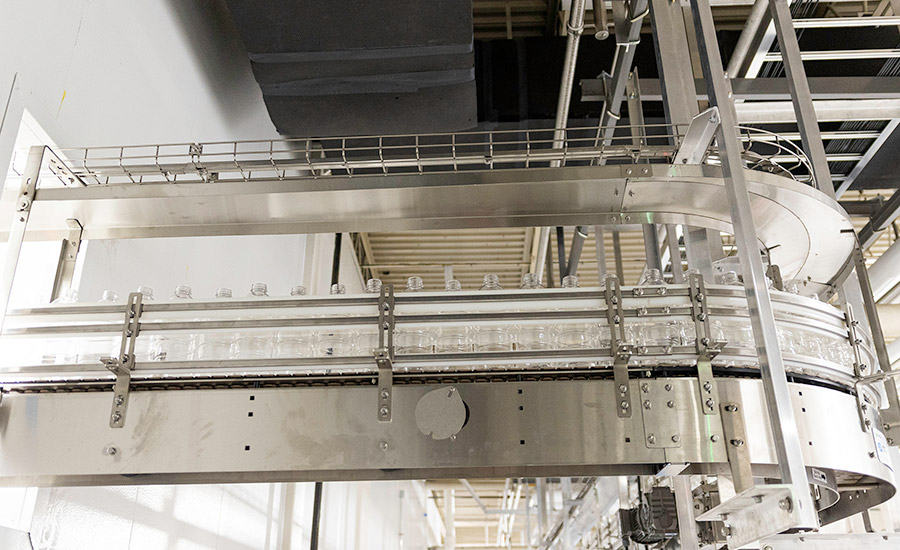
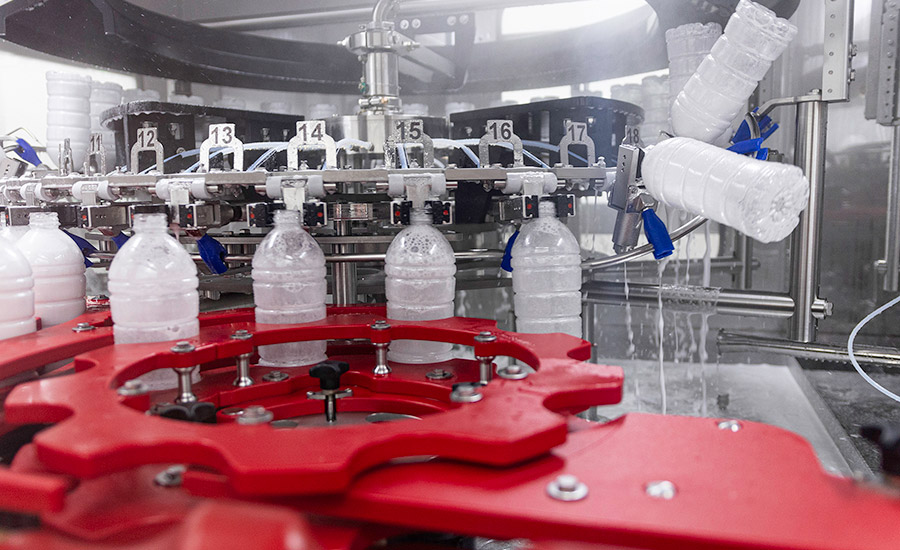
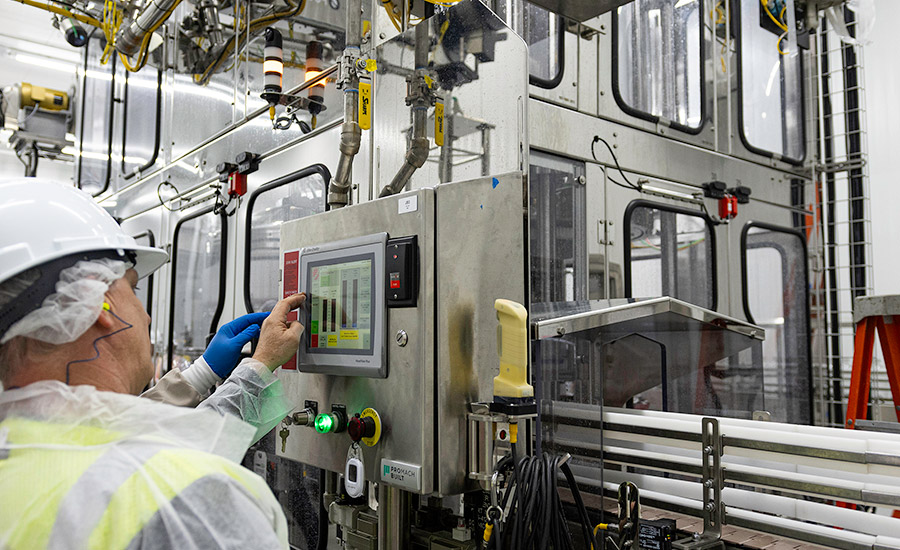
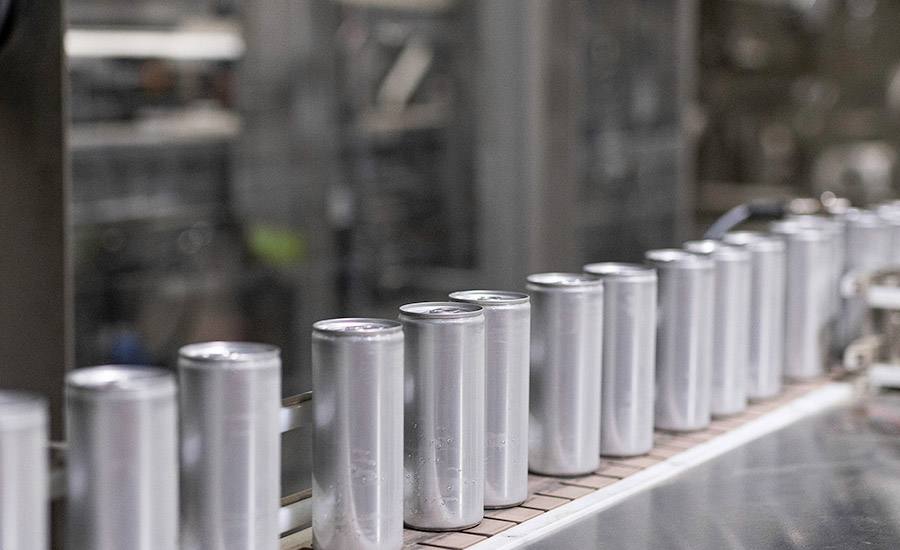
Westrock sells its RTD beverages to many well-known manufacturers on a private-label basis. It can produce anywhere from 16- to 48-ounce beverages.
About Westrock
From humble beginnings, Westrock was founded in 2009 as it partnered on-location with independent coffee farmers in East Africa. The coffee company is rooted in the belief that growth is an inevitable byproduct of investments in infrastructure, farmer development, product and supply chain innovation, and technological advancement.
The company entered the United States in 2010 when it opened a roasting facility in Little Rock, Ark. The company has grown since, including the acquisition of Falcon Coffees in 2014 and S&D Coffee & Tea in 2020. Westrock became publicly listed under the ticker symbol “WEST” in 2022.
Westrock provides beverage solutions to major brands across five continents. It sources from 35 origin countries — with a heavy focus on Central America and South America — and offers a wide range of products, including coffee, tea, flavors, extracts, and ingredients. Brazil and its large supply of Arabica coffee is a major supplier for example.
Westrock also owns and operates its own exporting facility in Rwanda.
“We made a commitment to 100% responsible sourcing, which means a lot of on-the-ground activities in the supply chains in which we operate. We have partners we work with, but also boots on the ground in many locations,” relays Matt Smith, executive vice president for supply chain. “We meet all ethical sourcing requirements. We have many social and environmental policies we think someday could become regulations.”
In addition to ethical sourcing, Cedric Smith stresses the facility is taking a lead when it comes to comes to wastewater, as well as recycling done whenever possible. Although it may seem simple, during our visit, we could see other methods of sustainability. This includes energy savings with lights turning on when we entered a room and quickly dimming or shutting off upon our exit.
Food safety is another significant company focus. Dairy Foods witnessed many of these efforts, including Westrock’s Coffee Lab, where quality assurance employees tested coffee beans via the “cupping” of coffee. Westrock and its partners have a coffee “scoring system,” which Westrock calls “Q Grading.” The company is specifically on the lookout for mold, overfermentation, and more. Employees who conduct Q grading need several years of experience in the field.
Room for growth
Westrock is definitely focused on growth. Cedric Smith reveals the Conway facility could expand beyond its large 570,000-square-foot footprint in the future.
Product expansion beyond RTD coffee beverages is also possible in Conway. This could include sales of teas, energy drinks, and protein drinks in the future.
Looking for a reprint of this article?
From high-res PDFs to custom plaques, order your copy today!






